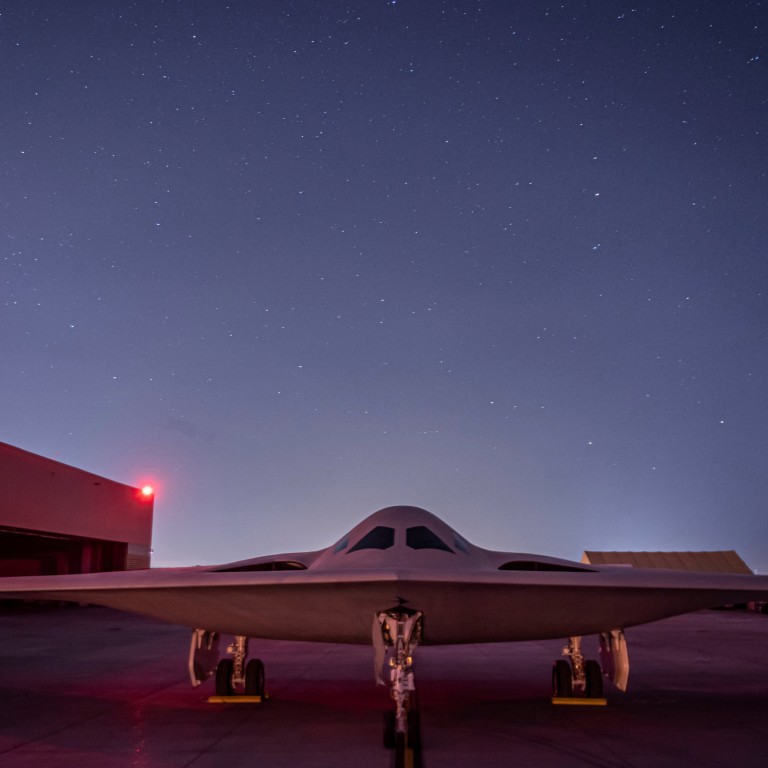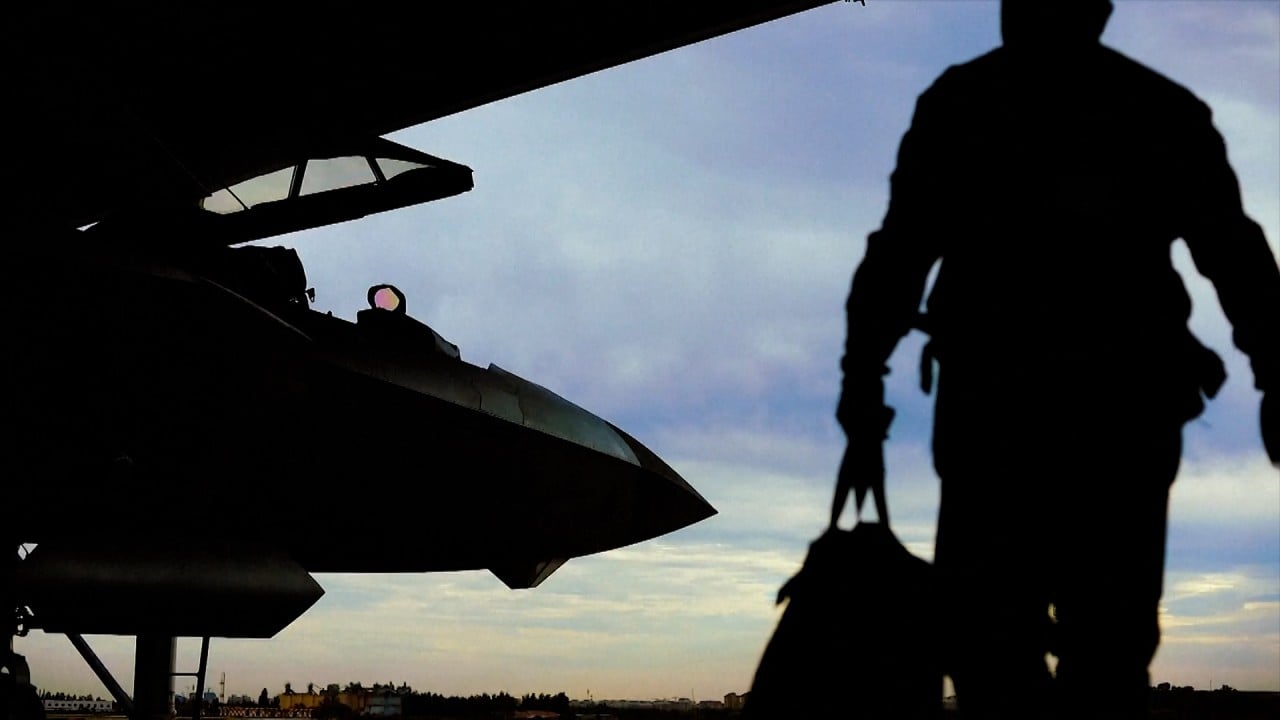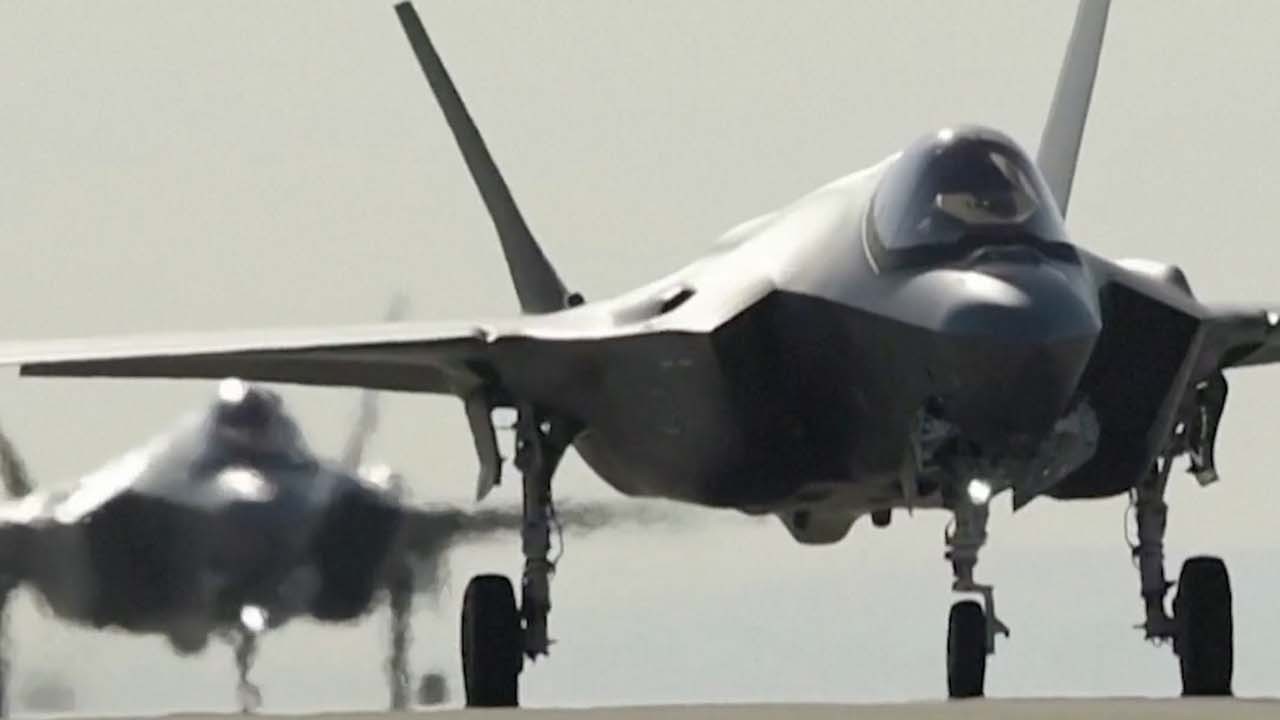
Australia eyes B-21 to contain China, but will US sell its most advanced stealth bomber?
- Aukus security pact increases Canberra’s odds of buying America’s newest warplane to fend off PLA threat, according to think tank
- However, others say the purchase would be waste of money and could provoke ‘counter-threats’ from Beijing
Speculation about Australia’s B-21 ambitions has grown since Australian Defence Minister Richard Marles acknowledged in August that Canberra was examining the possibility of buying a fleet of the bombers as part of the government’s defence strategic review, which will provide recommendations on military spending priorities for the next decade and beyond.
New US B-21 stealth bomber heightens strike gap with China
Aukus changes everything?
David Silbey, a military historian at Cornell University, said he was sceptical that Washington would allow Canberra to buy the planes, noting that the US has never sold its B-52, B-1 or B-2 bombers to other countries.
“American governments have long been reluctant to sell our most advanced weapons systems – especially ones with large nuclear war roles – to allies,” Silbey said.
“The United States has a tradition of not selling its long-range bombers to other countries,” Bowman said. “With that said, Aukus demonstrates that the US and its allies are willing to undertake bold and unprecedented initiatives to deter the growing threat from China.”
Why China should worry about new Australian nuclear sub base
The Aukus security pact, established in September 2021, aims to share advanced defence technologies among the three allies and help Australian forces boost their nuclear capabilities.
“Two years ago, it may have seemed unlikely that the US would provide us with the B-21. The Aukus announcement has changed everything,” the Australian Strategic Policy Institute (ASPI) said in a report released on December 12.
While Canberra should not assume access to the B-21 would be automatic, “the pendulum appears to have swung in Australia’s favour” as the US now seeks greater contributions from its Indo-Pacific allies in the deterrence of Chinese “coercion and aggression”, according to the report co-authored by Marcus Hellyer, a senior analyst at ASPI, and Andrew Nicholls, who advised three Australian defence ministers.
The Australian government should consider buying the new B-21 bomber to contain China’s growing threat in the region, according to the Canberra-based think tank.
“The ‘worst case’ scenario for Australia’s military strategy has always been the prospect of an adversary establishing a presence in our near region from which it can target Australia or isolate us from allies,” the report said.
Brad Martin, a senior policy researcher at US think tank Rand Corporation, said it would not be surprising to see the US and Australia cooperate on improved long-range strike capabilities given their long-standing relationship.
“Without getting into the specifics of any weapons system or programme, Australia having advanced capabilities signals its readiness to support theatre security,” Martin said.
Potential drawbacks
Cornell’s Silbey questioned whether it would be worthwhile for Australia to spend a lot of money to procure B-21s as the US already cycles some of its bombers to the country.
“A squadron of 12 B-21s for Australia, as the [ASPI] report suggests, would be massively expensive to buy and use, and would significantly limit other defence spending in ways that would have substantial impacts across Australia’s security situation. The US wouldn’t want Australia to cripple itself that way,” he said.
US debuts new stealth bomber – first in 30 years
Observers noted that if Australia managed to buy the B-21, it would probably irk China and escalate tensions between the countries.
“We can already draft China’s response, which will be the usual mix of chestnuts such as that the acquisition represents Cold War thinking, arms racing, zero-sum thinking, and so on,” the ASPI report said.
“Since the intent of a B-21 acquisition is to bolster regional deterrence against Chinese coercion and aggression, we can hardly expect any other response.”
Silbey said it “would likely cause China to focus its military capabilities more intently on Australia. Threats beget counter-threats and China would likely react to the new capability.”




